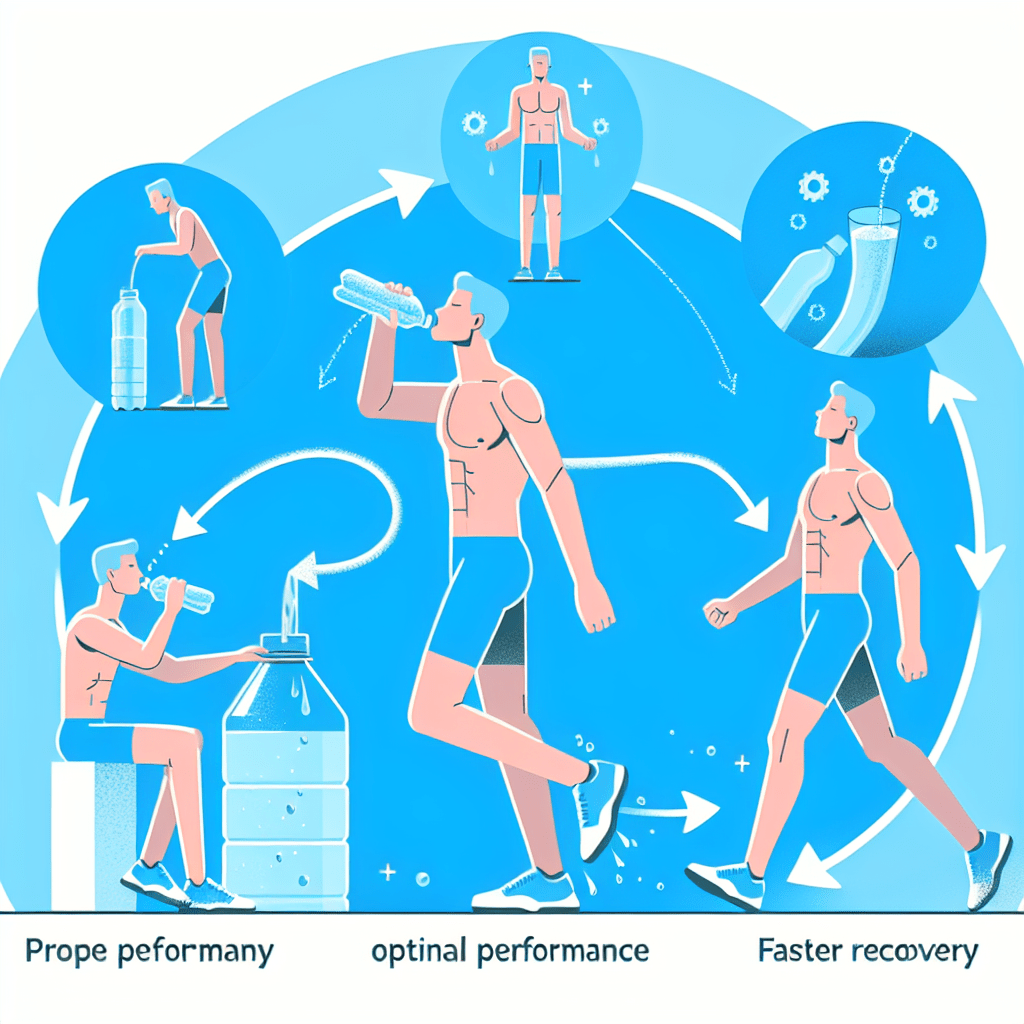Proper hydration is key to optimal performance and faster recovery. Here’s how it works:

Understanding the Importance of Hydration
Water is an essential component of our bodies, making up about 60% of our body weight. It plays a crucial role in maintaining the balance of bodily fluids, regulating body temperature, lubricating joints, and transporting nutrients. It is no surprise, then, that proper hydration is key to optimal performance and faster recovery in any physical activity.
Hydration and Physical Performance
During physical activity, our bodies produce heat which is then dissipated through sweat. This process helps to regulate body temperature and prevent overheating. However, it also leads to a loss of body fluids and electrolytes, which can impair physical performance. As Dr. Susan Shirreffs, a hydration researcher at Loughborough University, succinctly puts it,
This means that the body has to work harder to deliver oxygen and nutrients to the muscles, which can lead to fatigue and decreased performance."Dehydration can reduce the volume of blood pumped by the heart."
Hydration and Recovery
Proper hydration is not only important during physical activity, but also crucial for recovery afterwards. Water helps to flush out toxins and waste products from the body, aiding in muscle repair and recovery. Additionally, rehydrating after exercise helps to restore fluid balance and prevent dehydration, which can cause symptoms such as dizziness, fatigue, and headaches.
How Much Water Should You Drink?
The amount of water needed can vary greatly depending on factors such as age, sex, weight, physical activity level, and climate. However, a general guideline is to drink at least 8 glasses (or 2 liters) of water per day. This should be increased if you are engaging in physical activity or if you are in a hot climate. As American nutritionist and author, Ann Louise Gittleman, advises,
For example, if you weigh 150 pounds, you should aim to drink 75 ounces of water daily."Drink half your body weight in ounces of water every day."
Hydration and Heart Health
Proper hydration is also crucial for maintaining heart health. When you're dehydrated, your heart has to work harder to pump blood, which can increase the risk of heart disease. A study published in the American Journal of Epidemiology found that
Therefore, staying hydrated is not only important for physical performance and recovery, but also for overall health and well-being."A higher intake of water may reduce the risk of coronary heart disease."
Conclusion
In summary, water is an essential component of our bodies and plays a crucial role in physical performance and recovery. It helps to regulate body temperature, transport nutrients, and flush out toxins. Proper hydration can also reduce the risk of heart disease by easing the workload on the heart. As the saying goes,
So, drink up and stay hydrated for optimal health and performance."Water is life's matter and matrix, mother and medium. There is no life without water."



